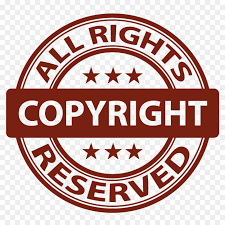Many businesses are built around intellectual property that they create themselves, whether ideas for better products or services, or new content that’s never existed before. But virtually every business enterprise regularly uses somebody else’s IP in the course of their operations. Most of this use involves copyright, simply by virtue of our daily activities. It’s virtually impossible to go through your business day without making some use of another person’s copyright, and it’s almost impossible to prevent it from happening technologically. That’s why copyright owners seek to control the authorized use of their works by imposing certain “road rules” affecting their use.
When you use your company’s photocopier to circulate relevant news articles from the morning newspapers to your senior management team you’re reproducing and distributing copies of that content which the newspaper might have otherwise sold.
When you install legal software into your computer (which you should always do!), for example, you are entering an End User License Agreement which specifies that even though you may have paid a purchase price to “own” it, what you are in fact getting is a limited permission allowing its use. You agree, among other things, not to reproduce it or otherwise distribute copies to your office colleagues unless you take out a group license. You further agree not to decompile, reverse engineer, or otherwise manipulate the software in any way or use it for any other purpose than its intended use.
If you buy a DVD or a music CD, you’ll see a host of restrictions in small print on the back of the box telling you what you can and can’t do with it. DVDs, for example, are sold for strictly for private, residential use and cannot be performed publicly without the copyright owner’s consent. If you own a bar or a restaurant in Thailand, or you run a common workspace office, and you want to play that DVD for your customers’ enjoyment you’ll need licensed permission from its copyright owner. The same would be true for sound recordings and the musical compositions contained on them.
The good news for businesses here is that there are organizations acting on behalf of rights owners to service these needs without disrupting your operations. The reasons these organizations exist is both to monetize the copyrights, and to ensure compliance with local laws and regulations as a means to permit and facilitate and enable their further use and enjoyment, rather than forbid or prohibit it.
For example, the Business Software Alliance’s License Compliance Services provides usage solutions for companies who for any reason did not secure licenses directly from the publisher. Here in Thailand, Absolute-NT administers public performance rights for Hollywood feature films allowing their use in the workplace on either a commercial or non-commercial basis, while MCT and TECA provide similar services for on behalf of rights owners in musical compositions and sound recordings, respectively. Given that penalties for copyright infringement in Thailand can include a fine of up to 800,000 baht per infringement, or up to 4 years’ imprisonment, or both, business owners should take stock of their operations and seek out knowledgeable experts where necessary to devise suitable compliance strategies.
(C) 2023 Frank Rittman




